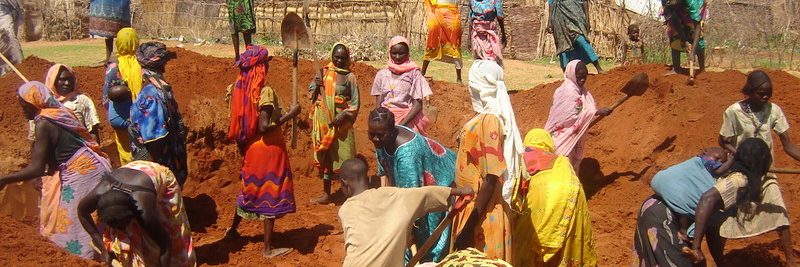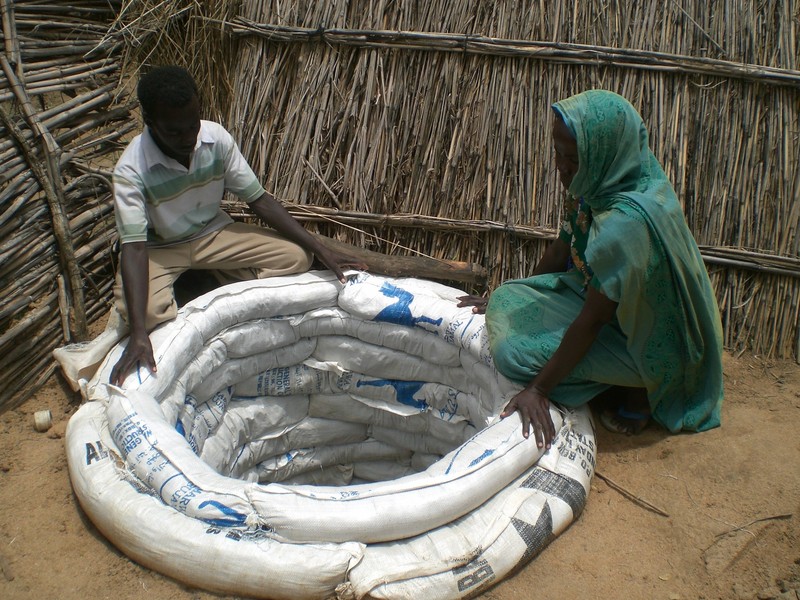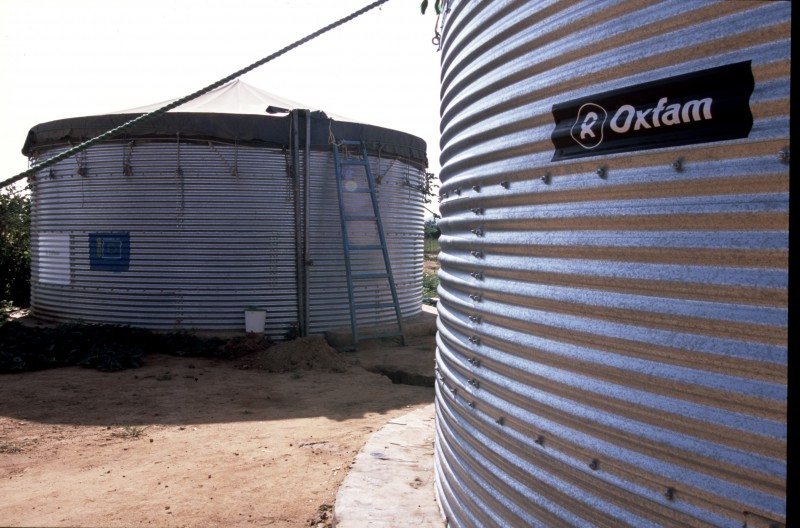Eastern Chad, in the heart of the Sahel in Africa, Chad
In collaboration with

2011
We bring water and sanitation infrastructure to five refugee camps from the Darfur conflict.
Objectives
- Water supply.
- Creation of Latrines, washing facilities, hygiene kits and rubbish dumps.
- Training of hygiene promoters.
- Raising international awareness about the Darfur conflict.
Beneficiaries
120.000 direct

On the ground
Lack of drinking water and sanitation infrastructure for refugees. Scarcity of resources in an area devastated by drought and demographically unbalanced by the Darfur conflict. Progressive decline in aid due to international forgetfulness.
The refugee camps in eastern Chad accommodate hundreds of thousands of people, including displaced Chadians and refugees from Darfur, the region in western Sudan whose bloody conflict has gradually fallen into international oblivion. These camps are located in the Sahel region, a semi-arid zone that has been devastated over the past few years by harsh drought. In addition to water scarcity, there is no sanitation infrastructure for the refugees, who live with displaced people and the indigenous population in a climate of internal tension.
The Darfur conflict in western Sudan has seen the government fighting against rebel groups since the beginning of 2003. Since then, attacks against the civilian population have resulted in approximately 400,000 deaths, and over 2.5 million people (almost half the population of Darfur) have had to leave their homes and seek refuge outside cities and towns in refugee camps, mainly in eastern Chad, which borders Darfur.

A forgotten crisis
The signature of the Darfur Peace Agreement in May 2006 by the government and a number of rebel Sudanese groups has not reduced attacks against civilians; on the contrary, these have intensified over time. This violence has crossed the border and also moved to eastern Chad, creating a climate of insecurity that is aggravating migratory movements and all of the problems resulting from these. This conflict has progressively been consigned to oblivion by the media, which is why Intermón Oxfam has launched an international public awareness programme, which is essential in order to collect further aid.
The region bordering Sudan in which the refugees have settled and in which the most serious attacks against the Chadian population have taken place forms part of the Sahel, an extremely fragile environment in which the desert advances rapidly and basic resources such as water, timber and pasture for animals are scarce. Consequently, the demographic impact of the arrival of refugees and displaced people seriously threatens the sustainability of these resources.
Intermón Oxfam has been working since 2004 in the refugee camps in eastern Chad, in which Darfur refugees, Chadians displaced as a result of internal tension within their country and the indigenous population of the area coexist. It has focused its work on water and sanitation projects in a number of refugee camps, as well as distributing non-food goods to improve public health and prevent outbreaks of epidemics and disease.

In detail
The water and sanitation programme for the refugees of the Darfur conflict covers five camps in Chad: Djabal (17,531 beneficiaries), Goz Amer (23,288), Aradib (19,844), Habilé (45,756) and Ville de Goz Beida (14,500). All of these camps require drinking water and sanitation infrastructure, as well as education on hygiene in order to prevent disease. In some camps, such as those in Djabal and Goz Beida, over 300,000 litres of water are supplied daily.
The work is based primarily on the following:
- Ensuring water supply.
- Managing the water tanks and improving and cleaning wells and springs.
- Distributing appropriate containers to transport the water.
- Building latrines.Building washing facilities.

The problem of hygiene
Furthermore, it is necessary to distribute non-food goods among the refugees, such as soap and products to clean the latrines, buckets, rubbish containers and mosquito nets, and create areas in which to burn rubbish so as to avoid water contamination and the spread of disease.
Reducing the risk of the spread of epidemics and disease is a priority objective. The situation varies depending on the camps; for example, the problems are heightened at the Goz Beida camp because of the vast quantities of rubbish and the lack of groundwater.
Education in hygienic and healthy practices is an essential part of this aid work. Intermón Oxfam trains health and hygiene promoters to manage the sanitation systems and involve the entire community in these tasks.

